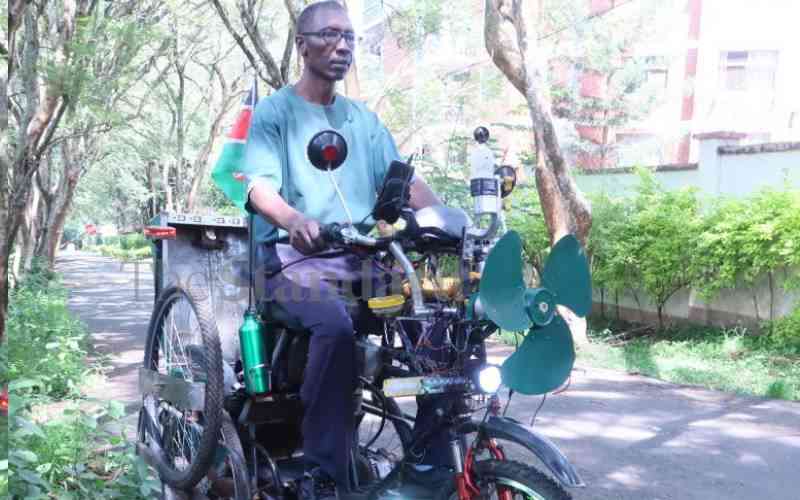×
The Standard e-Paper
Kenya’s Boldest Voice

In 2017, David Cheserem, 58, started online research on the production of power using water.
An idea then came to him on how to produce electricity through a vertical-axis wind turbine.